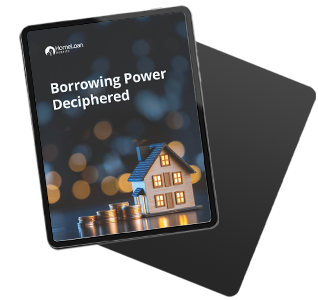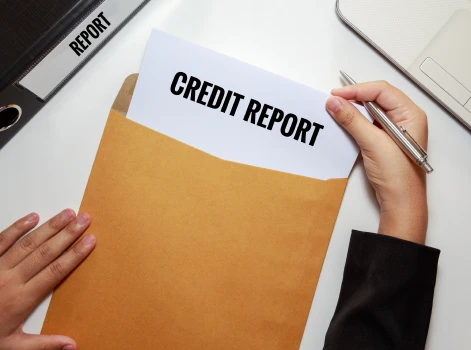You may well have a clean credit file but did you know that simply owning a credit card can have a massive impact on your borrowing power?
That’s because most credit departments assess your debt based on your credit card limit not your balance. What can you do to borrow more?
Why Banks Focus On Credit Card Limits
Many people assume their credit card balance, not their limit, determines how much it affects their borrowing power. However, most banks assess your debt based on the credit card limit rather than the actual balance. Here’s why:
- Banks generally calculate a hypothetical minimum repayment for your credit card limit, which is typically 2-3% of the limit per month.
- For example, if your credit card limit is $10,000, lenders assume you’re repaying $200–$300 monthly, regardless of whether your balance is $0. This amount is added to your monthly expenses, effectively lowering your borrowing capacity.
By reducing or cancelling your credit cards, you may be able to increase the amount you can borrow for a home or investment property. Use a borrowing capacity calculator to see how credit cards affect your ability to secure a loan.
Are You A Good Credit Card Holder?
To be clear, having a credit card is not necessarily a bad thing. In fact, if you have one credit card, pay it down regularly and never use the full limit then you will generally be looked upon more favourably than someone who doesn’t have a credit card at all (assuming you meet all other eligibility requirements).
That’s because lenders can see a clear history of payments made on time and in full, a good indication that you are likely to properly manage your mortgage repayments as well.
If your repayments are made on time, some banks and major lenders don’t even take your credit limit into consideration when assessing your borrowing power and instead use the largest balance on your card from the last three months.
How Your Credit Card Repayment History Impacts Home Loan Applications
Your repayment history plays a big role in determining your creditworthiness. Under comprehensive credit reporting (CCR) laws, banks can see if you’ve missed payments by more than five days in the last two years. Even a single overdue payment can lead to a declined loan application.
However, all is not lost if you have blemishes on your repayment history. Specialist lenders can take a more understanding approach, provided you work with an experienced mortgage broker to present your case.
The Effect Of Multiple Credit Cards
Lenders don’t like to see that you’re living off credits, and generally speaking, having more than one credit card is another red flag that suggests you’re living beyond your means.
It is still possible to get a home loan even if you have some credit problems. You can find out more on our bad credit home loans page.
Pro Tip:
- Consolidate your debt: If you have several credit cards, consider consolidating your debt into one card with a manageable limit.
- Reduce your credit card limit: Aim to reduce your credit card limit to reflect your actual spending needs. For example, if you only spend $1,000 monthly, there’s little reason to maintain a $5,000 limit.
When Cancelling A Credit Card Is A Good Idea
While keeping a credit card open is often the best option, there are scenarios where cancelling is the smarter choice:
- High Annual Fees: If your card charges hefty fees and offers little value, it might be better to close the account.
- Divorce or Separation: Joint accounts can complicate financial matters during a separation. Closing the account protects both parties.
- Overspending: If you find it difficult to control your spending, cancelling the card can help you avoid debt.
How To Cancel A Credit Card The Right Way
If cancelling your credit card seems like the best move for your financial situation, follow these steps to ensure it’s done properly:
Pay Off The Balance In Full
- Your balance must be $0, including any accrued interest or pending transactions, before you can cancel your credit card.
- Contact your bank to get a final payout figure, which accounts for any interest or fees.
Cancel Direct Debits
- Move recurring payments, such as subscriptions or utilities, to another payment method before closing your card.
- Ensure all direct debits have stopped by checking your credit card statement.
Redeem Rewards
- Don’t let your hard-earned points go to waste. Check your credit card provider’s terms for redeeming rewards before closing your account.
- Some providers allow you to convert points into cash or discounts.
Request Cancellation
- Log in to your bank’s online portal or call customer service to officially close your account.
- Ask for written confirmation of the closure, which should include a final statement showing a $0 balance.
Destroy The Card
- Cut through the card’s magnetic stripe and chip to prevent unauthorized use.
Will Cancelling A Credit Card Hurt Your Credit Score?
Cancelling a credit card can impact your credit score in several ways, depending on your financial situation:
Credit Utilization Ratio
Your credit utilization ratio compares your current credit balances to your total credit limit. A lower ratio is better for your credit score. Closing a credit card reduces your total available credit, which could increase your utilization ratio and negatively affect your score.
Length of Credit History
Older credit cards contribute to the average age of your credit accounts, which makes up 15% of your FICO score. Cancelling your oldest card may shorten your credit history and lower your score.
Payment History
Consistently paying your credit card bills on time reflects well on your credit report. Closing a card won’t erase that history immediately; positive accounts typically remain on your report for 10 years.
Pro Tip:
If you don’t want to use a card but are concerned about your credit score, consider keeping it open with a $0 balance instead of cancelling it.
Reducing Your Credit Card Limit: A Middle Ground
If you’re not ready to cancel your credit card entirely, reducing your credit limit is a practical alternative. For example:
- A $10,000 limit can be reduced to $2,000, freeing up borrowing capacity without losing the benefits of your credit card.
- Provide written confirmation of the reduced limit to your mortgage broker for loan application purposes.
Before You Buy: The Importance of Borrowing Power
The Secrets Of Borrowing Power And Maximising Your Mortgage Potential

Before doing anything with your credit card, speak to your mortgage broker. We may be able to find a lender that doesn’t require you to change your credit terms at all!
In most cases, credit card holders will need to provide their broker with three months credit card statements as evidence of on time payments. This is helpful when the broker presents your case to the lender.
If no statements are issued by your credit provider, you can simply download and print off the most recent statement and a transaction history from your internet banking account.
Please call us on 1300 889 743 or enquire online today to get the support you need.
Let An Expert Assess Your Situation
Before doing anything with your credit card, speak to your mortgage broker. We may be able to find a lender that doesn’t require you to change your credit terms at all!
In most cases, credit card holders will need to provide their broker with three months credit card statements as evidence of on time payments. This is helpful when the broker presents your case to the lender.
If no statements are issued by your credit provider, you can simply download and print off the most recent statement and a transaction history from your internet banking account.
Please call us on 1300 889 743 or enquire online today to get the support you need.
